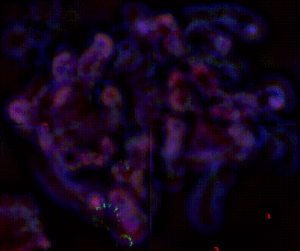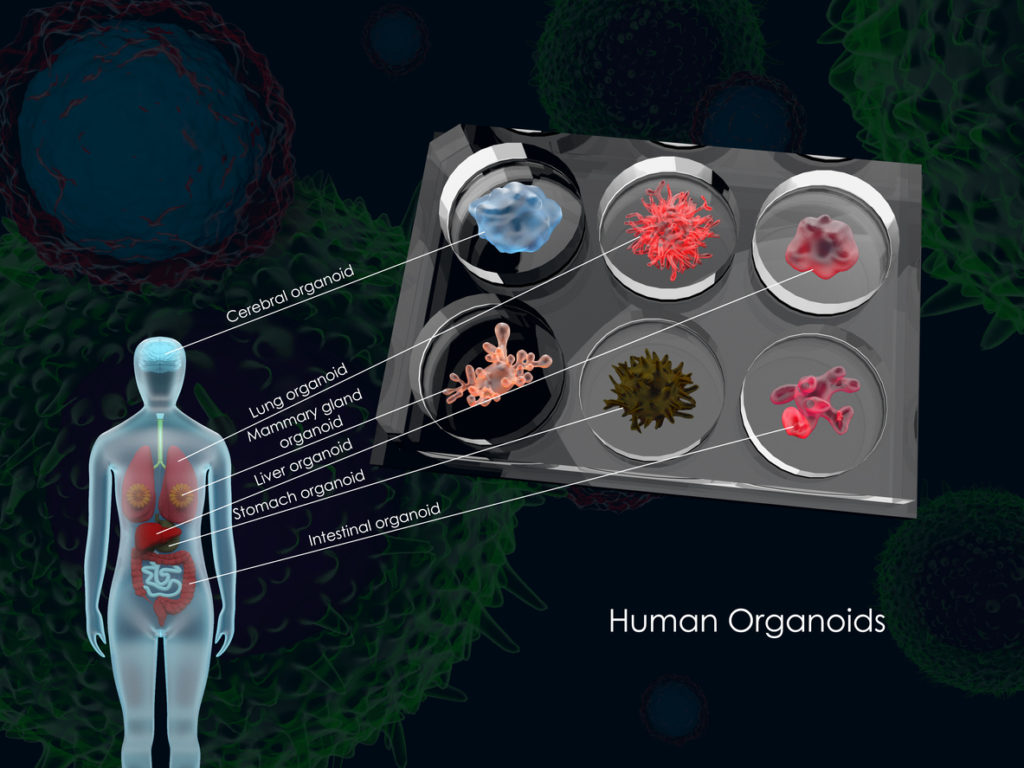Human intestinal organoids for high throughput screening
A collaboration with the Lyell McEwin Hospital and Walter and Eliza Hall Institute.
Organoids are three-dimensional organ “buds” that can be propagated from stem cells or from ex vivo biopsy from humans or animals. These organoids represent the epithelial architecture and the cellular diversity of the intestine and are therefore functional mimics of the original tissue they were derived from, providing a biologically relevant system for in vitro research. Organoid cultures derived from ex vivo patient biopsy enables study of oncogenes and colorectal cancer development, opening the possibility for personalised drug screening or precision therapies.

Human intestinal organoid under microscope
This project aims to establish human intestinal organoids as an ex vivo model system for preclinical drug screening. We have established gut organoids from biopsy tissue derived from both the normal gut and colorectal adenomas of human subjects. This system will (i) allow us to identify and verify biomarkers of disease and/or treatment efficacy (ii) fast-track drug development by the pharmaceutical industry, (iii) repurpose inexpensive off-label drugs with known side effects and efficacy, and (iv) explore the potential of personalised dietary interventions, which will lead to improved health outcomes of individuals.
We are also collaborating with Ominiwell (www.ominiwell.com) to determine the feasibility of culturing human organoids using Ominiwell’s BioTwin chip for application in R&D and personalised medicine.
The project was made possible through CSIRO Kick-Start, an initiative that provides funding and support for innovative Australian start-ups and small businesses to access CSIRO’s research and development (R&D) expertise and capabilities.
 TEAM MEMBERS:
TEAM MEMBERS:

Dr Kim Fung
- Primary Emailkim.fung@csiro.au

Dr Chenkai Ma
- Primary Emailchenka.mai@csiro.au

Ms Ilka Priebe
- Primary Emaililka.priebe@csiro.au

Ms Theodora Almond
- Primary Emailtheodora.almond@csiro.au

Dr Yi Jin Liew
- Primary Emailyijin.liew@csiro.au

